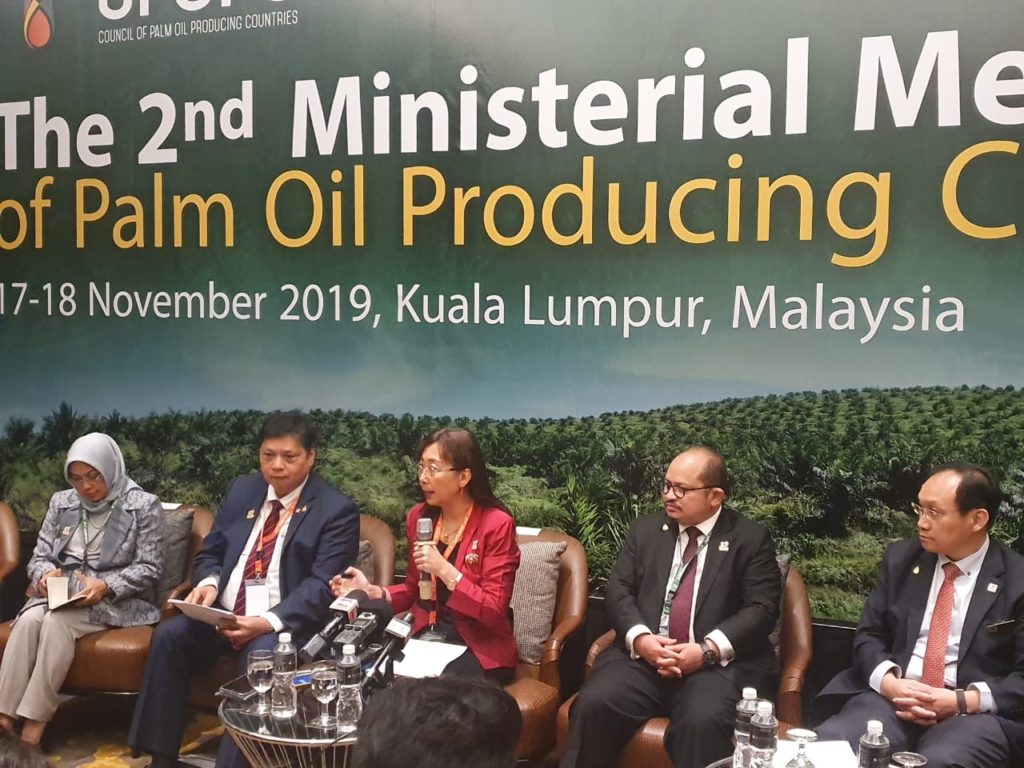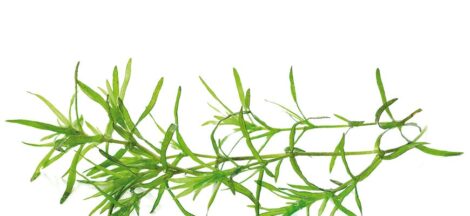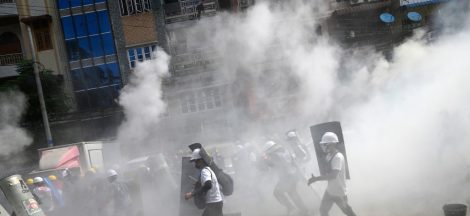Tackling palm oil disputes, challenges. Indonesia’s palm oil sector has been embroiled in disputes over palm oil with the European Union for most of 2019, characterized by tit-for-tat trade spats, tariffs and lawsuits amid the government’s efforts to empower smallholder oil palm farmers.

Palm oil is one of Indonesia’s top foreign exchange earners and contributes 1.5 to 2.5 percent to gross domestic product (GDP). But the commodity has faced growing restrictions overseas in recent years, especially in the EU–Indonesia’s second largest buyer in 2018.
The commodity has been linked to environmental degradation, particularly deforestation, but Indonesia has interpreted the measure as a protectionist move for locally produced vegetable oils like soybean oil and sunflower oil.
Tackling Palm Oil Disputes
In June 2018, the European Parliament decided on a 32 percent renewable energy target, under which it intended to phase out palm oil biodiesels by 2030. The European Commission (EC), the EU’s executive arm, then adopted the Renewable Energy Directive II (RED II) in March 2019.
Following the EC’s decision, President Joko “Jokowi” Widodo and Malaysian Prime Minister Mahathir Mohamad sent a joint letter to the bloc that same month, objecting to the directive as “unfair” and “discriminatory”. Indonesian ministers also threatened to take the case to the World Trade Organization (WTO) as a form of unfair trade, whether as an independent lawsuit or together with Malaysia.
Tackling Palm Oil Disputes
Malaysia is the world’s second largest palm oil producer after Indonesia.
Responding to the objections, the bloc explained that the RED II was not intended to target specific biofuels or feedstocks, and that it was based on 2008-2015 deforestation data that showed a large proportion of deforestation was associated with the cultivation of oil palm.
Indonesia then slammed the EU for using “old” data as the basis for the directive.
After months of retaliatory threats, the Indonesian government sent an official request for consultation to the EU on Dec. 9 to initiate its lawsuit against the RED II. The government also hinted at the possibility of filing a separate lawsuit against the EU’s biodiesel tariffs that took effect that month, which range from 8 to 18 percent and are effective for five years.
Tackling Palm Oil Disputes
The bloc imposed the tariffs in August after the EC claimed it had discovered that the Indonesian government was providing trade-distorting subsidies to several biodiesel producers.
Despite the trade spat, Jokowi said in November that Indonesia would proceed with the Indonesia-EU Comprehensive Economic Partnership Agreement (IEU-CEPA) toward its conclusion next year.
“Indonesia will not keep silent about the EU’s discrimination, but negotiations over the Indonesia-EU CEPA will continue. Palm oil will certainly be a part of it,” Jokowi said at Merdeka Palace during a meeting with members of the EU-ASEAN Business Council.
Aside from accelerating the IEU-CEPA negotiations, Jokowi also asked stakeholders to accelerate implementation of the government’s policy on the mandatory use of crude palm oil (CPO) biodiesel blend from 20 percent blended diesel (B20) to 30 percent blended diesel (B30) by January 2020 and to 50 percent blended diesel (B50) by the end of 2020.
The policy is a response to the EU’s palm oil restrictions and also intended to boost domestic use of CPO. The domestic market is expected to absorb 9 million tons of CPO a year once the B20 and B30 policies are both implemented.
Tackling Palm Oil Disputes
To promote sustainable palm oil and combat the so-called negative campaigns on the sustainability of palm oil, the Jokowi administration has maintained the moratorium announced last year on issuing permits for new palm oil plantations while enforcing sustainability standards through the Indonesian Sustainable Palm Oil (ISPO) certification program.
In the meantime, the National Development Planning Agency (Bappenas) last year launched the “One Map Policy” on a single standardized geospatial map. The One Map Policy aims to resolve the country’s long-standing spatial problems, including contradictory spatial information at different ministries that has led to the cultivation of oil palm in forestry areas.
Tackling Palm Oil Disputes
Yet palm oil sustainability is not just a matter of preventing plantation expansion and resolving regulatory confusion, but also about encouraging oil palm regeneration among smallholder farmers to prevent deforestation. Smallholders manage around 40 percent of all oil palm plantations in Indonesia–about 4.5 million hectares of 11.26 million ha according to a recent estimate.
But many farmers still lament that they are unable to obtain grants from the People’s Oil Palm Replanting (PSR) program of the Indonesian Oil Palm Estate Fund, which requires land certification to apply for the grant. Smallholder farmers still face difficulties in gaining land ownership, let alone earning enough money to meet their basic needs.
The meager results of the PSR program in 2018 has prompted authorities to announce in February that it would simplify the requirements for smallholder farmers to obtain funding assistance to replace their old trees.
As Indonesia attempts to address its problems of sustainability and smallholders, critics have warned that the snail’s pace in improving oil palm sustainability in the face of mounting global trade pressures could jeopardize the commodity’s future.
Tackling Palm Oil Disputes
At a public discussion in October, Bogor Agricultural University (IPB) forestry expert Herry Purnomo, who is also a senior researcher at the Center for International Forestry Research (CIFOR) urged the government to maintain transparency to avoid fostering distrust among global players. In return, the EU could provide incentives to encourage sustainable oil palm cultivation, which could espouse a more positive, long-term narrative on the commodity.
“As mandated by the Constitution, sustainability is a must, not a choice,” said Herry, referring to Article 33, Paragraph 4 of the Constitution. “I’m confident that we can achieve sustainability.”
2019: Tackling palm oil disputes, challenges (Made Anthony Iswara, The Jakarta Post)






 Pasien Bedah Rileks tanpa Takut Dioperasi, Alunan Musik Membantu
Pasien Bedah Rileks tanpa Takut Dioperasi, Alunan Musik Membantu 